Can We Be Heroes?
In which Norm spins up Criterion's HELL'S ANGELS and Shout! Select's SNOWDEN.
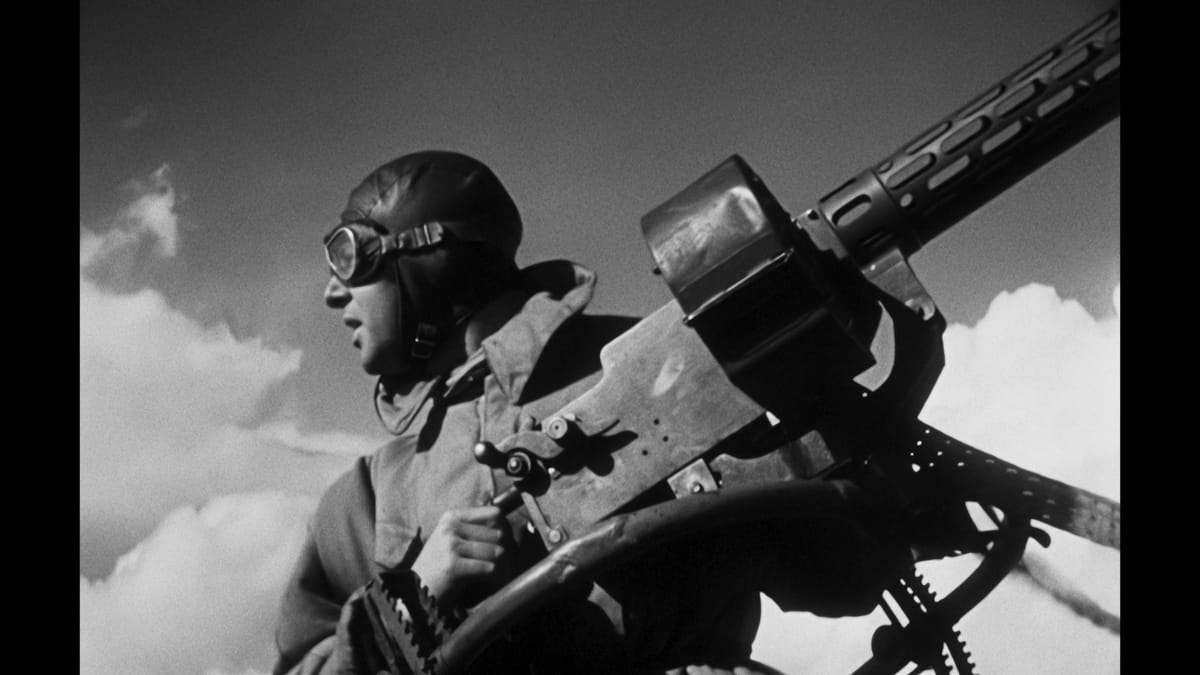
War: It’s bad, right? But what about fighting a war for a just and noble cause? What about possibly preventing the next conflict by revealing a secret government program with the potential to steer a nation down a path of provocation?
These are the questions debated that drive Howard Hughes’ Hell’s Angels and Oliver Stone’s Snowden, both of which are freshly on disc in celebratory special editions from Criterion and Shout! Studios, respectively. And hey, finding connections is what I do.
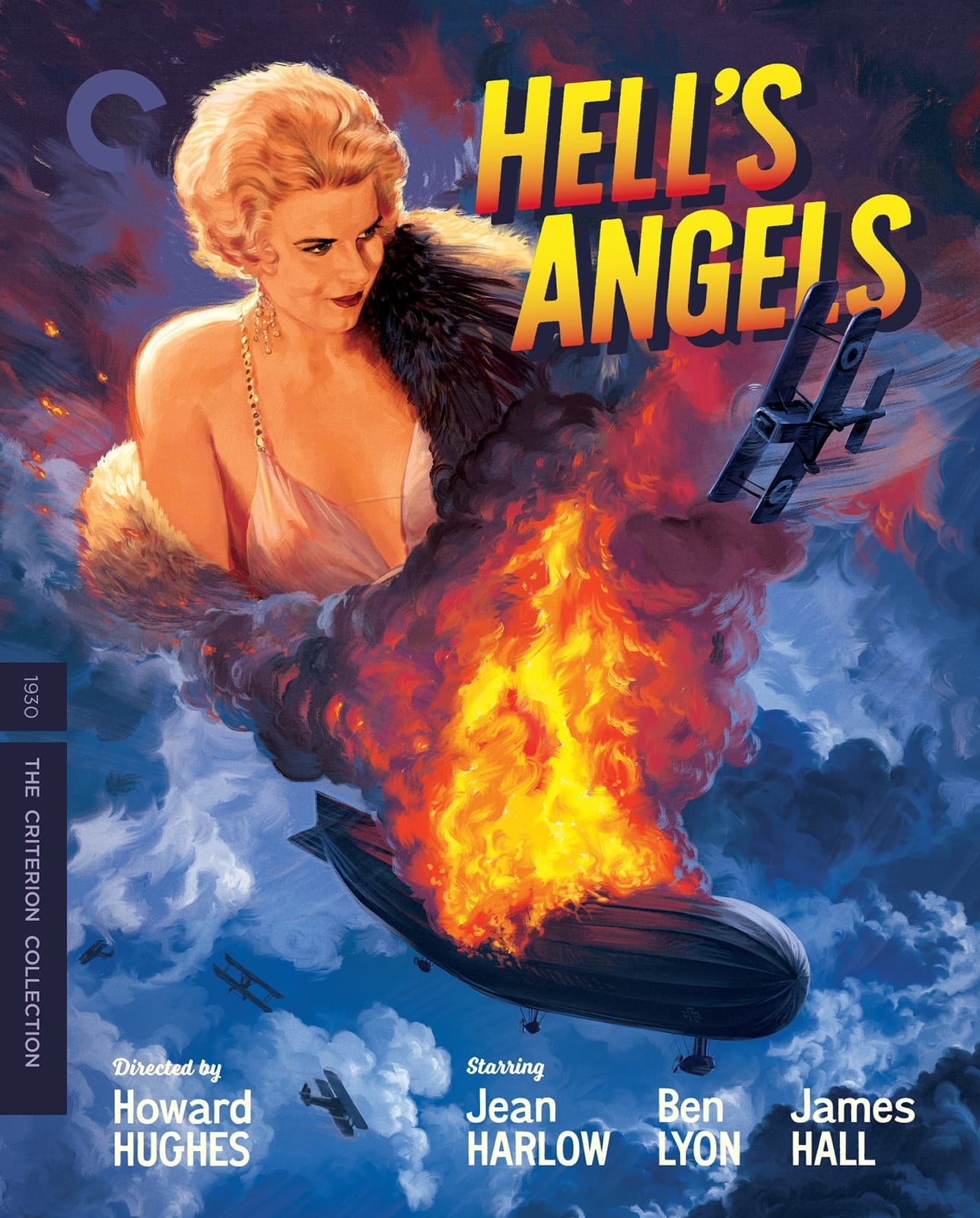
Hell’s Angels was one of Hughes’ many passion projects, an ambitious action-drama that sees World War I through the eyes of British brothers Monte (Ben Lyon) and Roy (James Hall), and their Oxford chum Karl (John Darrow), who seem on track to become sworn enemies when the Great War breaks out. Karl is conscripted into the German navy while Roy and Monte volunteer for the Royal Flying Corps. But the real conflict comes in the form of Jean Harlow’s Helen, who captivates both brothers and sets them against … each other!
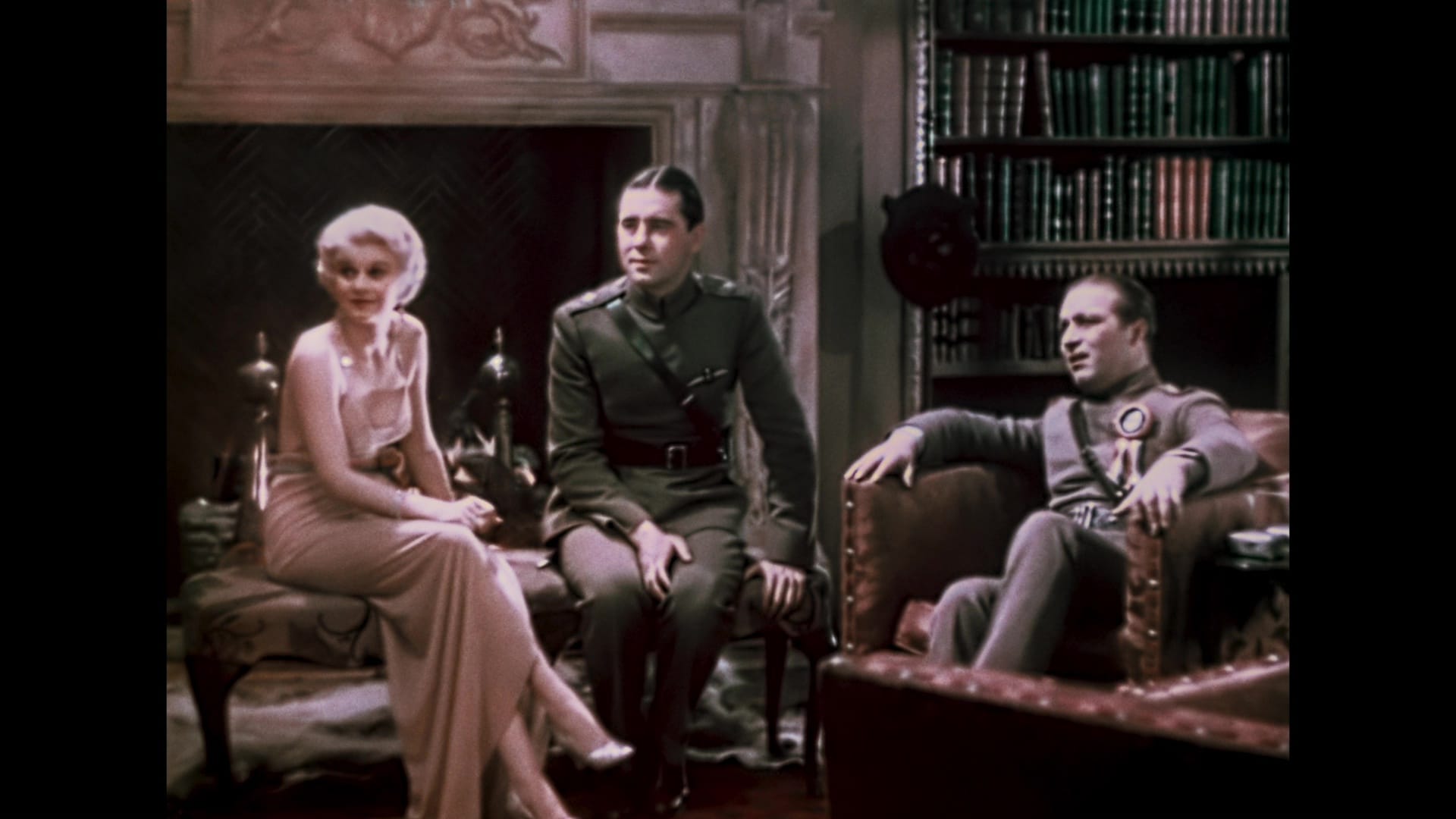
Yes, it’s awfully clichéd and feels like a throwback to the earliest and most simplistic days of silent-movie storytelling – and indeed Hell’s Angels went into production in the silent era, only retroactively becoming a talking picture when shooting took so long that Hughes had to redesign the picture from the ground up, hiring James Whale – fresh from bringing Journey’s End to Broadway – as his dialogue director. Hughes was more interested in the aerial action, anyhow.
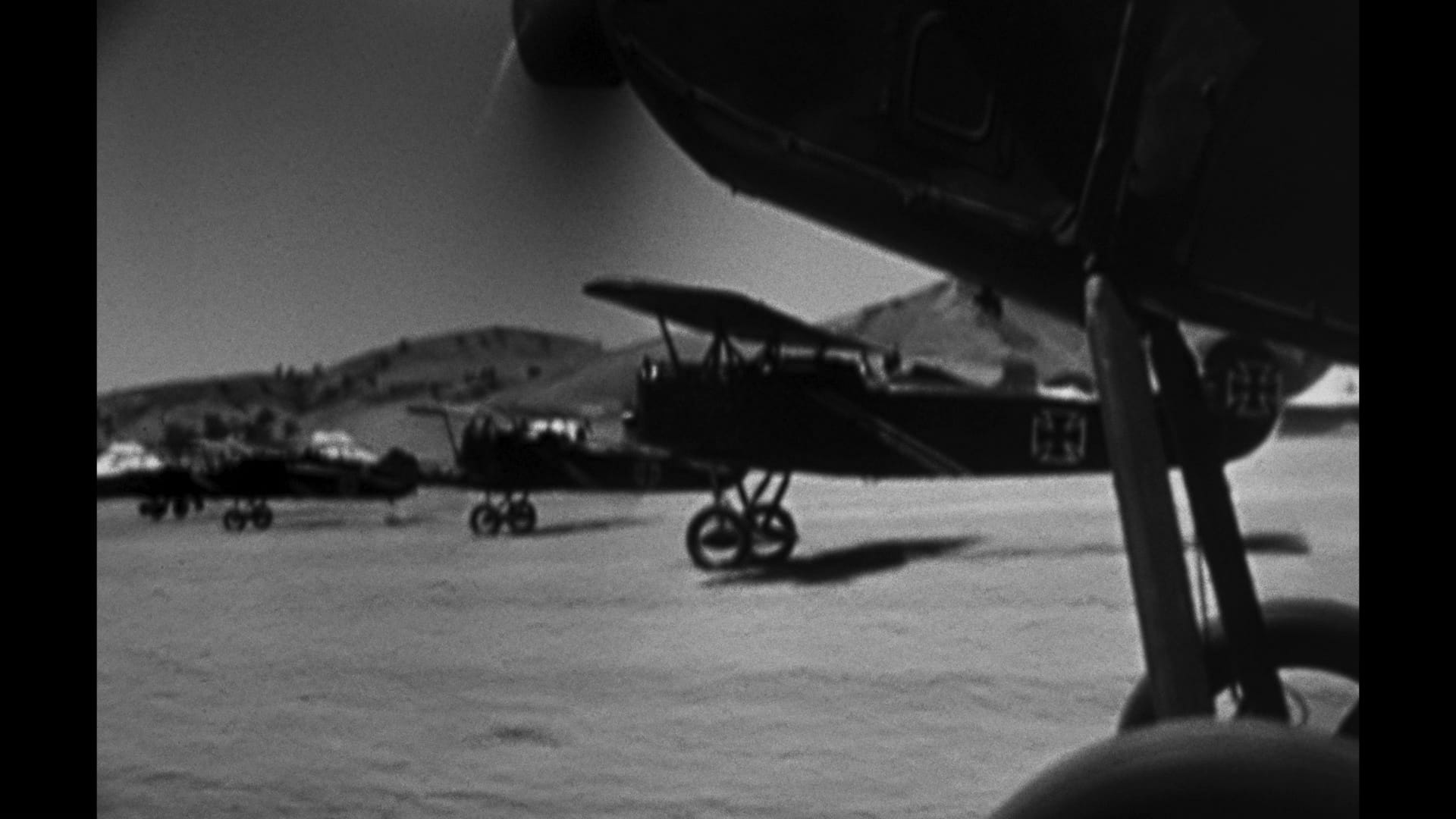
The flight sequences are why Hell’s Angels is remembered today – a mixture of genuinely thrilling stunts and innovative early miniature effects which hold up surprisingly well. Hughes designed most of them himself, and paid real aces to perform them … and when one stunt proved too risky for the veteran pilots, Hughes attempted it himself, ending in a near-fatal crash. (If this is starting to sound familiar, the events were a key section of Martin Scorsese’s 2004 Hughes biopic The Aviator.)
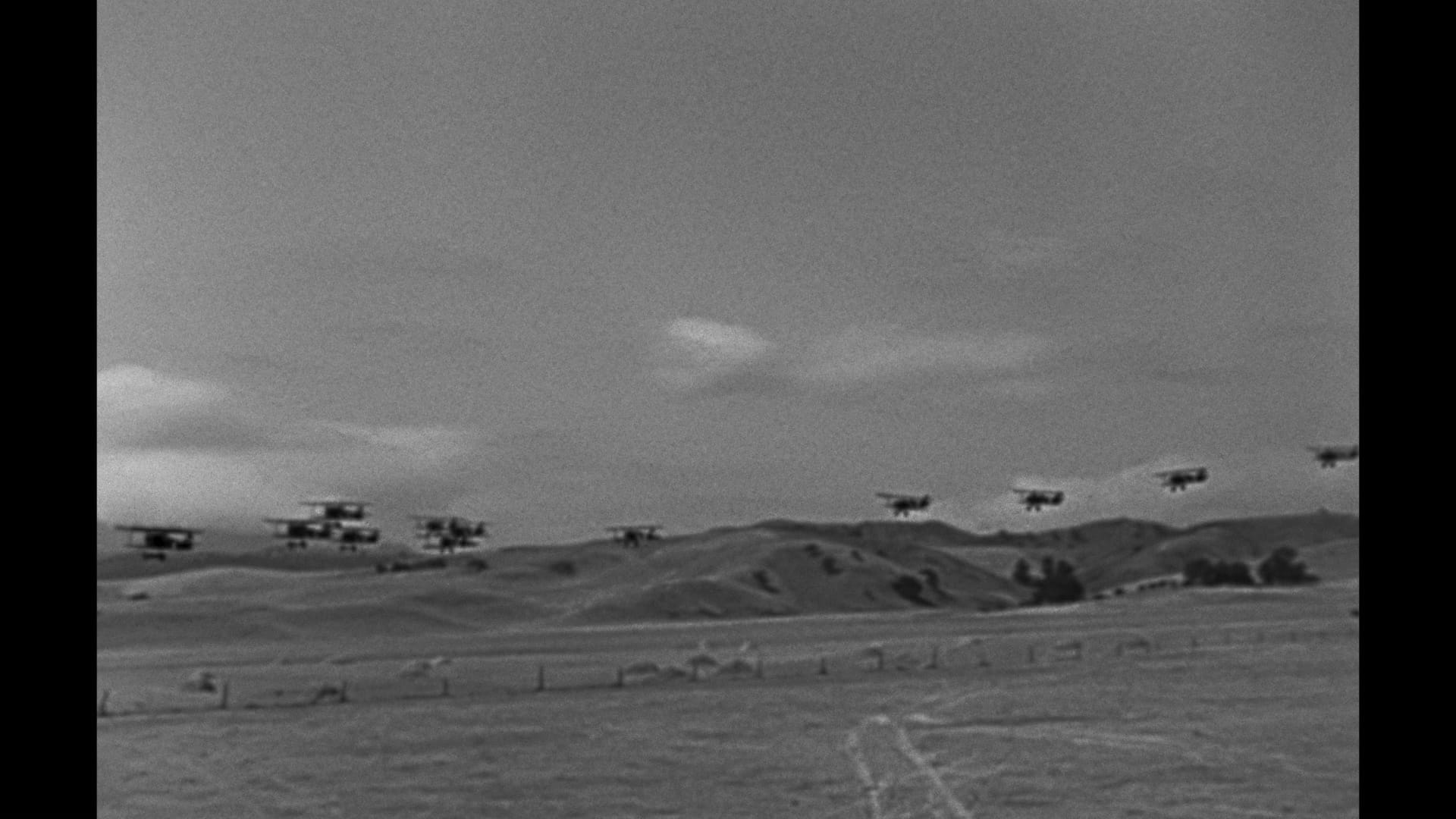
Watching Hell’s Angels almost a century after its debut feels like peering into a divergent universe of Golden Age cinema. It looks like nothing else, thanks to Hughes’ near-infinite resources; he was able to shoot some sequences in color, and tint others in vivid blue or purple. He released the picture in Magnascope, a gimmick format which wowed audiences by slowly expanding the 1.37:1 Academy image at key moments to fill a towering frame. It was more about creating scale than width, and it would have been very impressive in a big enough cinema. (Criterion’s transfer presents the Magnascope scenes at 1.54:1, expanding the frame at the sides.) The sound mix, cleaned up but preserved in its original mono, is also remarkably sophisticated for its day, with the whines of engines, the sputtering of propellors and the chatter of machine-gun fire. And because Hell’s Angels was made before the advent of the production code, there’s an edge to the love triangle – okay, a horniness – that feels surprisingly modern.
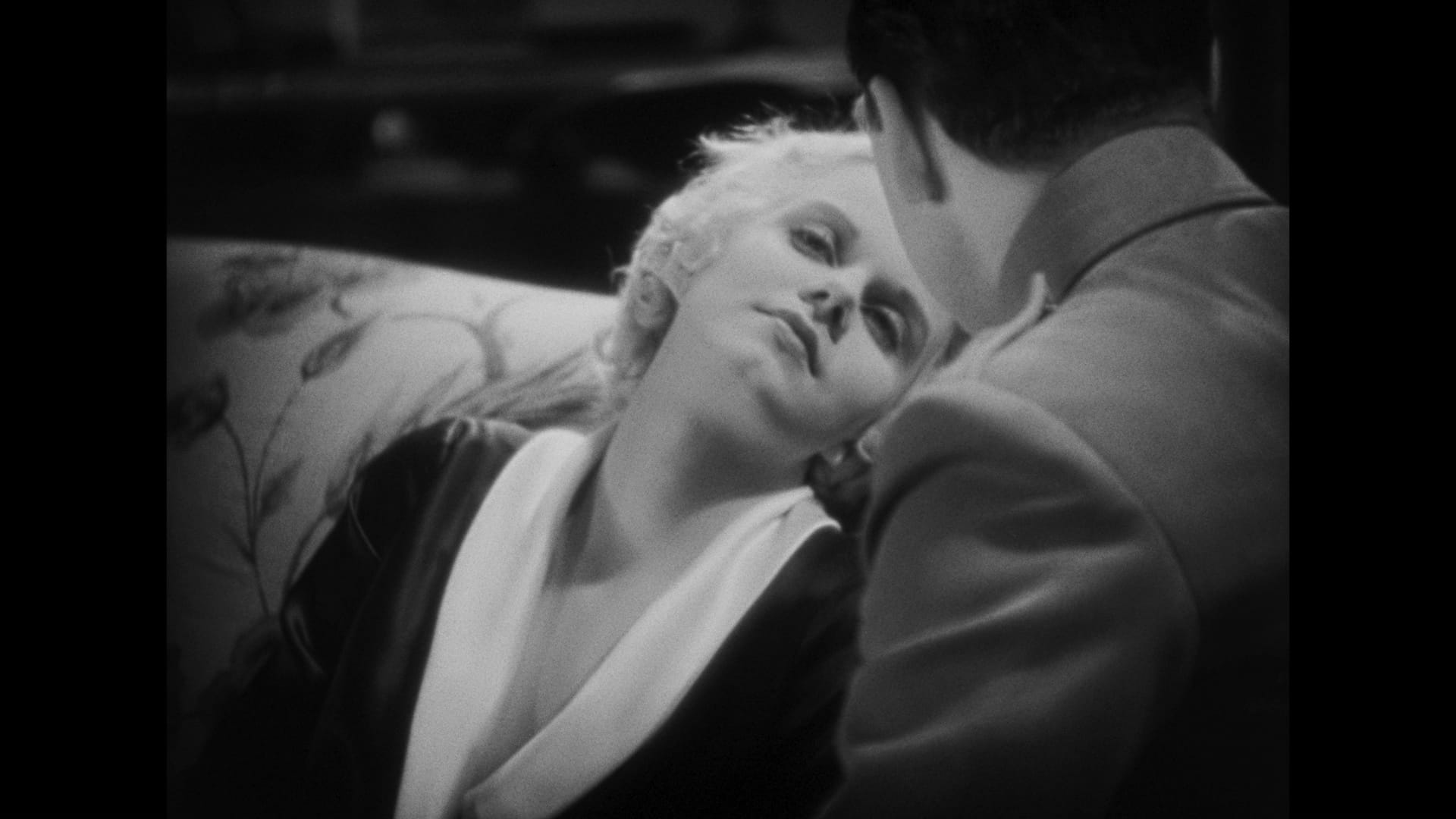
Harlow has the smallest role, really, but she makes an indelible impression. Hers isn’t the strongest performance – the role of Helen is pretty inconsistently written, which is hardly her fault – but the camera loves her, and Whale, who’d go on to make Frankenstein and several other key films of the era, worked intensively with the ingenue to shape her scenes to her strengths. They had faces then, as the saying goes.
Criterion’s edition of Hell’s Angels offers a new digital restoration of the feature, sourced from a 35mm duplicate negative of the Magnascope roadshow version, complete with intermission. I was sent the Blu-ray edition rather than the 4K combo release, but even at 1080p the film looks amazing for something that’s 95 years old.
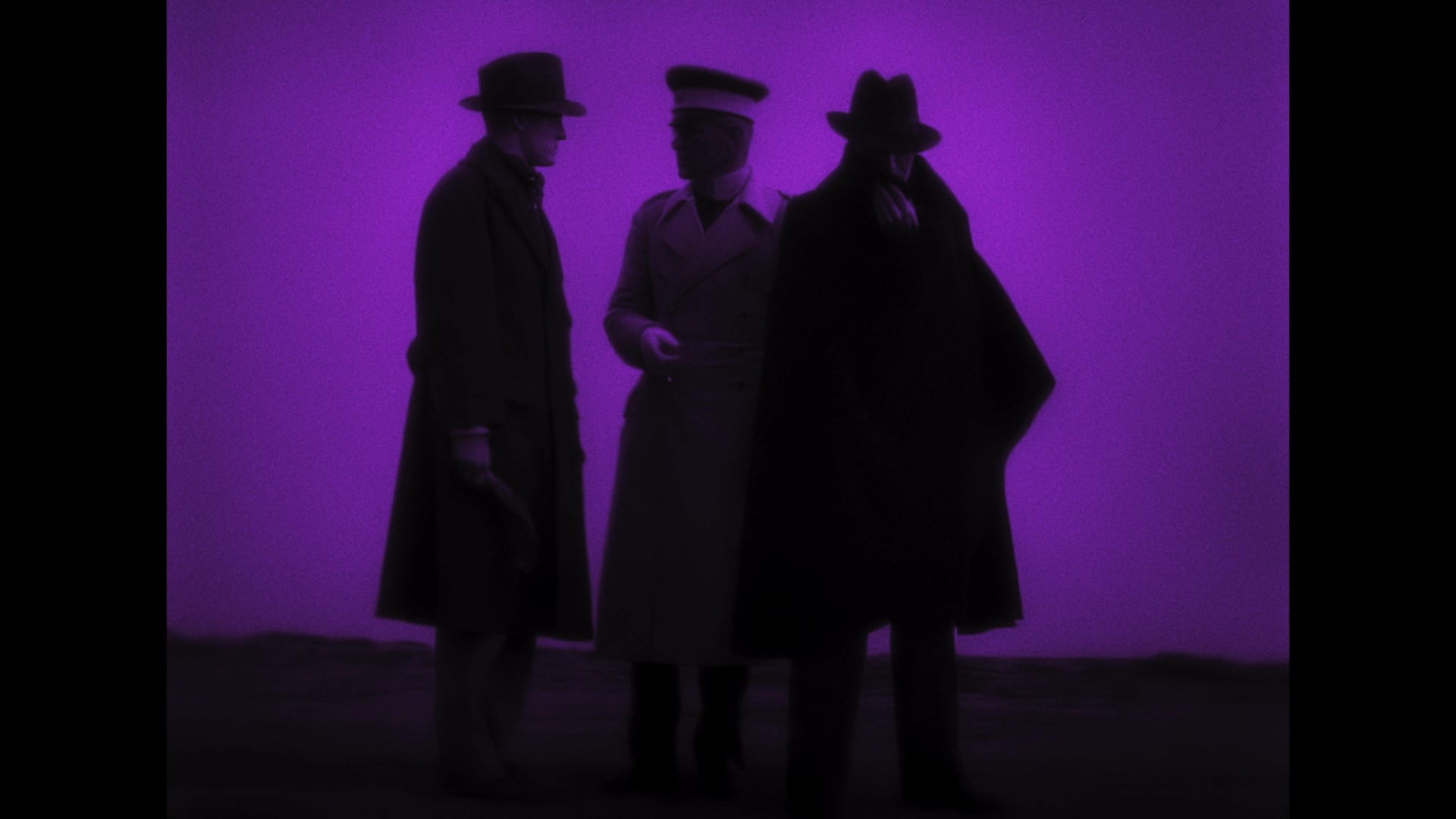
The film is supported with two new interviews that let contemporary experts break down the Hughes and Harlow of it all. Visual effects supervisor Robert Legato, who re-created a number of the flight scenes for The Aviator, shares his appreciation for what Hughes and his crew managed to achieve with the technology of the time, and film critic Farran Smith Nehme discusses Harlow’s career and the springboard Hell’s Angels provided it.
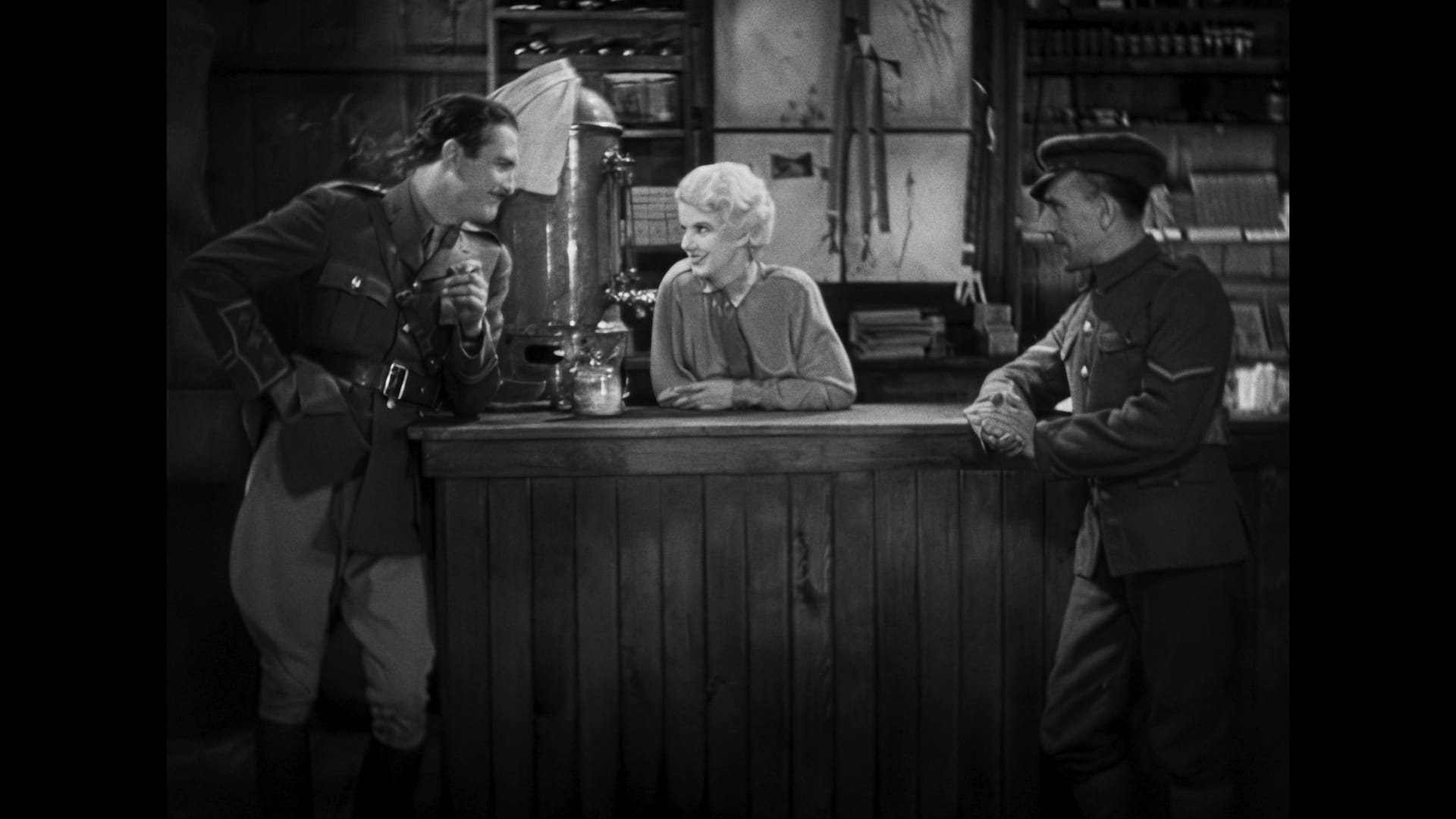
A brief selection of outtakes from the film, with commentary by Harlow’s biographer David Stenn, is also included. And Fred Kaplan contributes a thoughtful essay (which you can read right here) about Hughes’ accomplishments and innovations in Hell’s Angels not being limited to the technical: It was, Kaplan argues, one of the earliest films to raise the idea that the Great War might not have been so great after all.
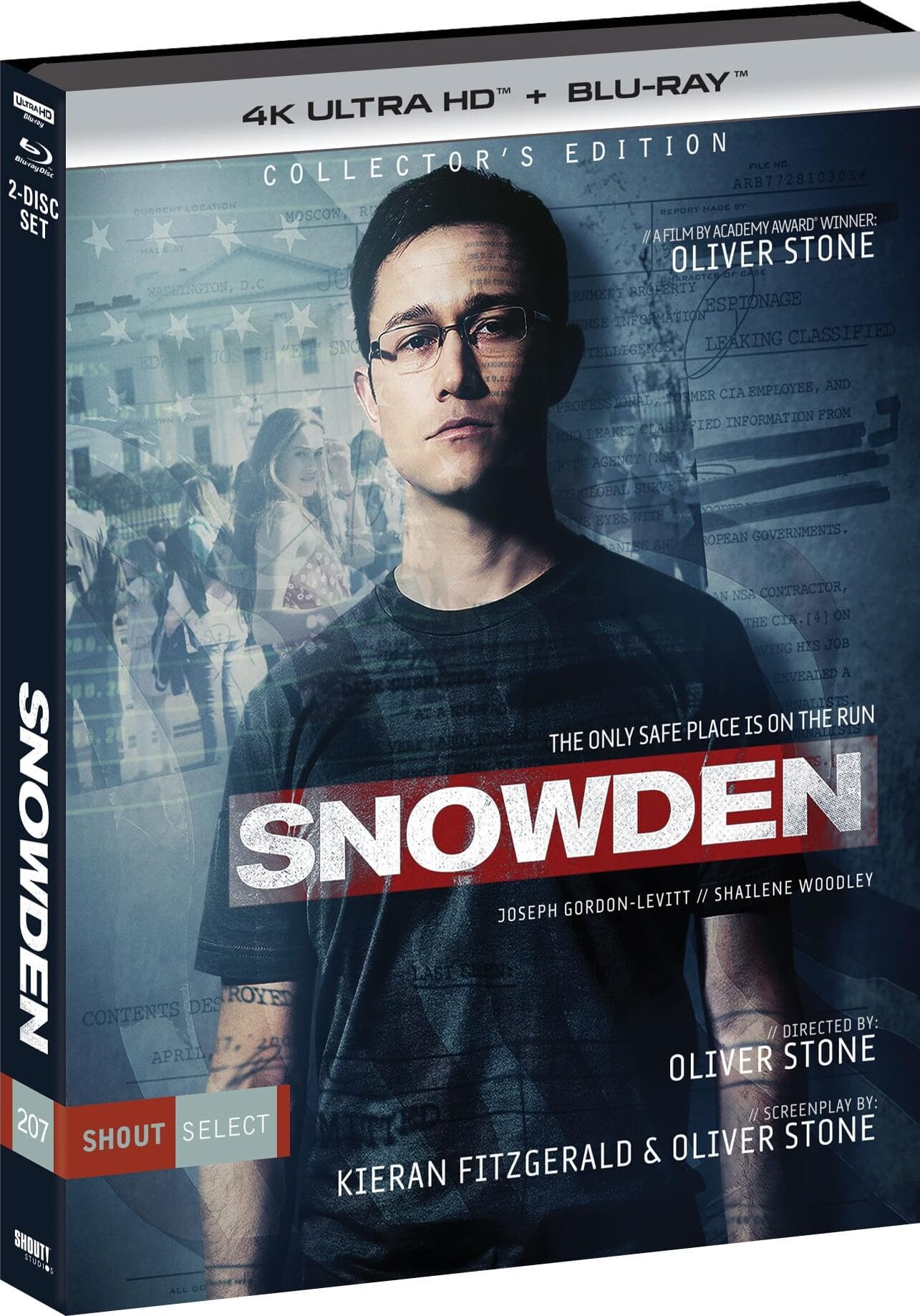
You know who else doesn’t like war? Oliver Stone! Okay, that was a cheap shot: Most of us don’t like war! (He does share a certain obsessive megalomania with Hughes, though.) And in any case, Stone’s last and possibly final feature, Snowden, isn’t really a war picture; a docudrama starring Joseph Gordon-Levitt as the NSA contractor who turned whistleblower in 2013, revealing the details of the Agency’s mass surveillance programs. So it’s about the way wars will be fought in the future – through mass surveillance and targeted coercion, manipulating people and governments without needing to fire a single shot.
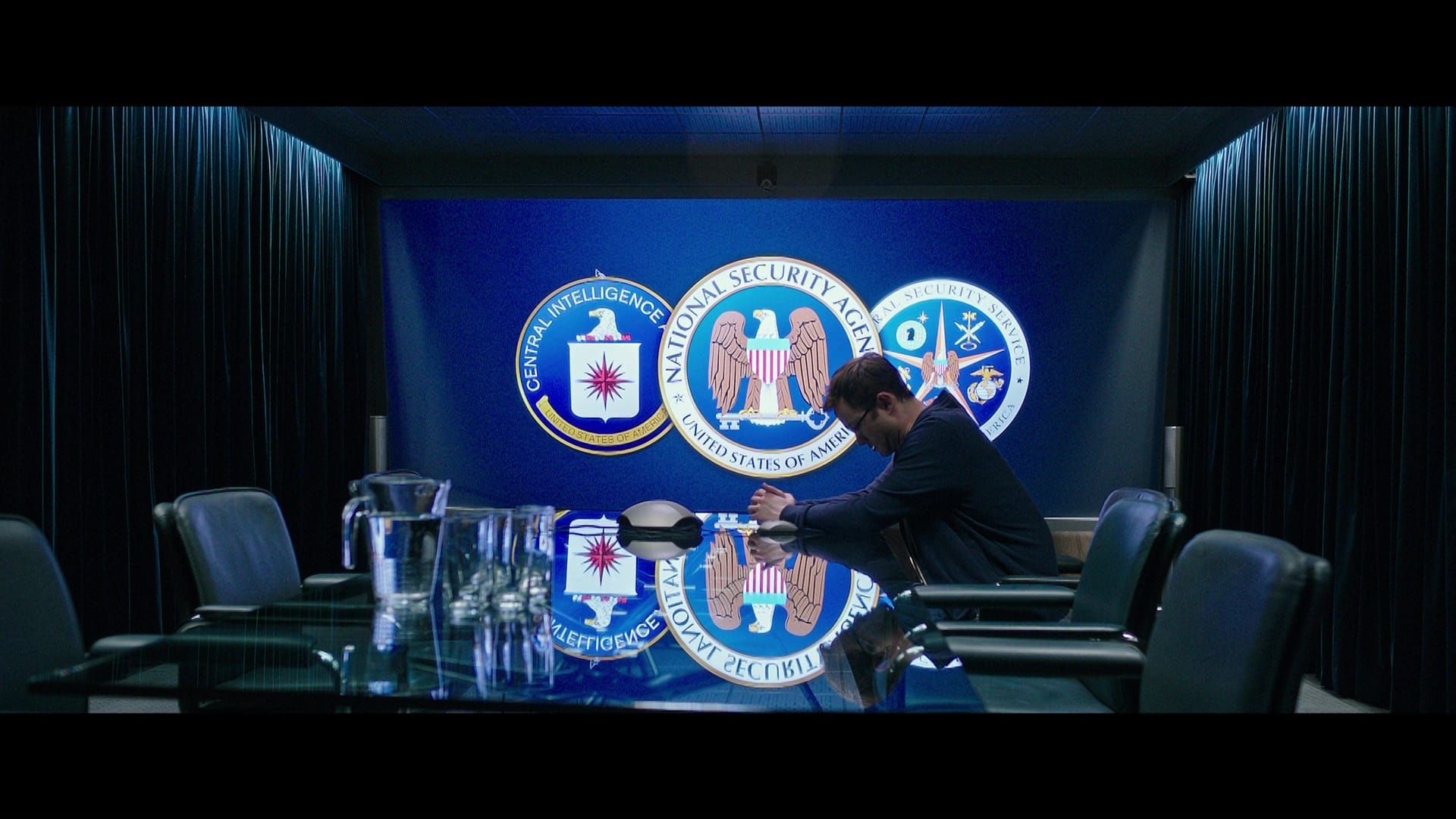
When the film premiered at TIFF nearly a decade ago, Edward Snowden was the ideal subject for an Oliver Stone project; the story gives Stone a way to express his distrust of government institutions and validate his long-standing paranoia – they really were out to get us, you see! – and since it arrived a couple of years after Bill Condon’s embarrassingly overheated Julian Assange drama The Fifth Estate, Stone’s take felt surprisingly restrained. It works as a nervous technothriller, with Gordon-Levitt’s underdog techie slowly realizing the scope of the work he's doing, radicalizing himself into action while everyone around him settles for either cynicism or willful ignorance. (Shailene Woodley, as Snowden’s girlfriend Linsday Mills, does her best to flesh out a role written as “sweetly concerned.”)

I’ll admit Snowden hasn’t aged all that well, since subsequent events have added uncomfortable context to Snowden’s actions – and let’s face it, any movie where Glenn Greenwald saves the day is going to play very differently in 2025. But it stands up as one of Stone’s better films, breaking a long streak of middling, frustrating statement pictures that left you wondering whether he’d fallen into a bleary, moralistic rut. Snowden is still moralistic, but its arguments are valid. I just wonder if the real Ed is happy with where his compass ultimately took him.
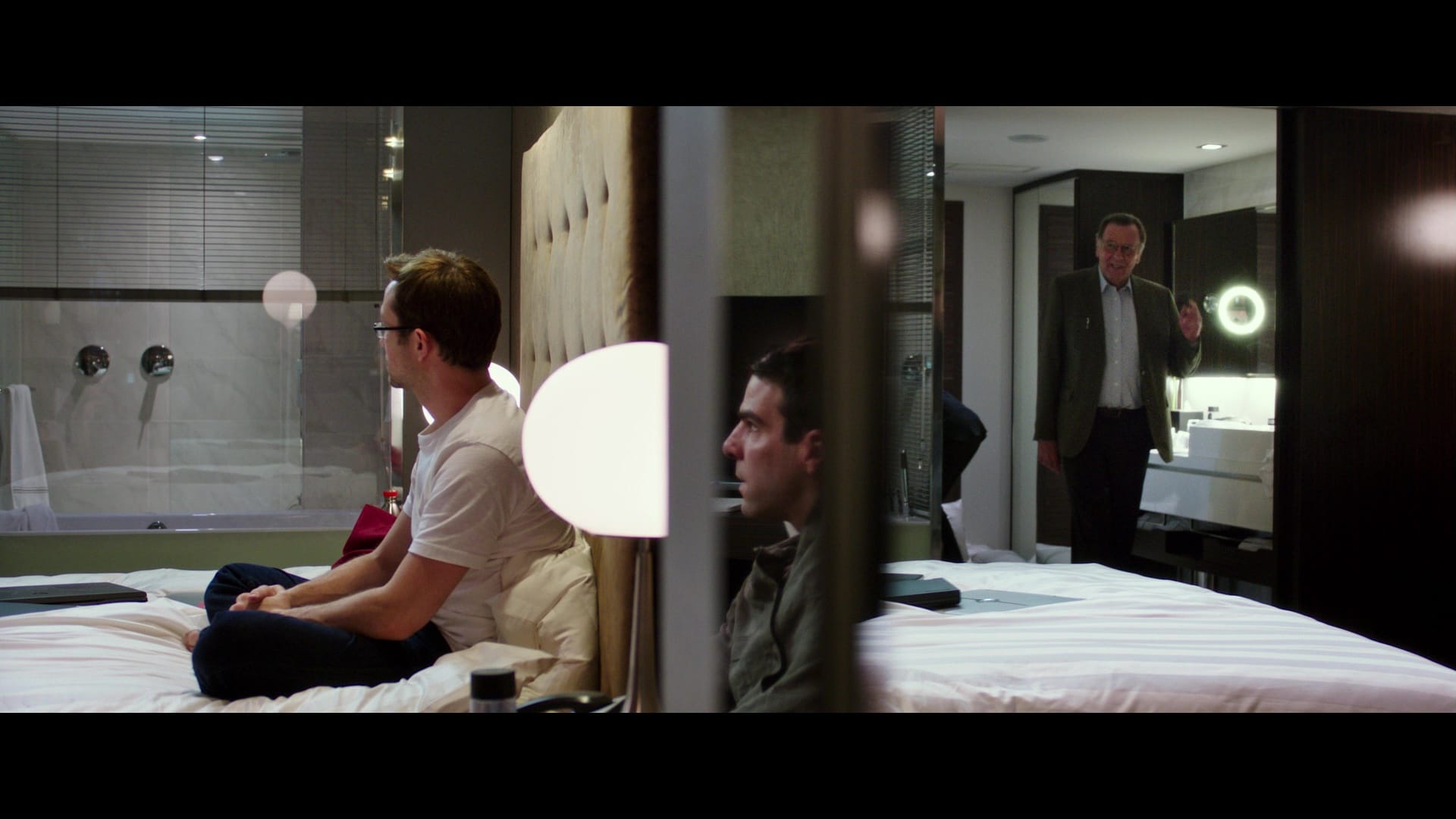
Both the 4K and Blu-ray discs of Snowden are built around a new 4K master of the feature, in line with the other special editions of Stone’s movies the label has been releasing. This one’s more of a remastering job than a full-on restoration, since the film is less than a decade old and was shot digitally rather than on film. Still, this transfer is richer and more vibrant than the earlier disc, the UHD version subtly expanding the color scheme and visual density of Anthony Dod Mantle’s imagery. There are a lot of computer displays and blinky light sources in this one, all operating at different levels of intensity. The DTS-MA 5.1 audio mix appears to be the same one that was mastered for the previous disc, though.
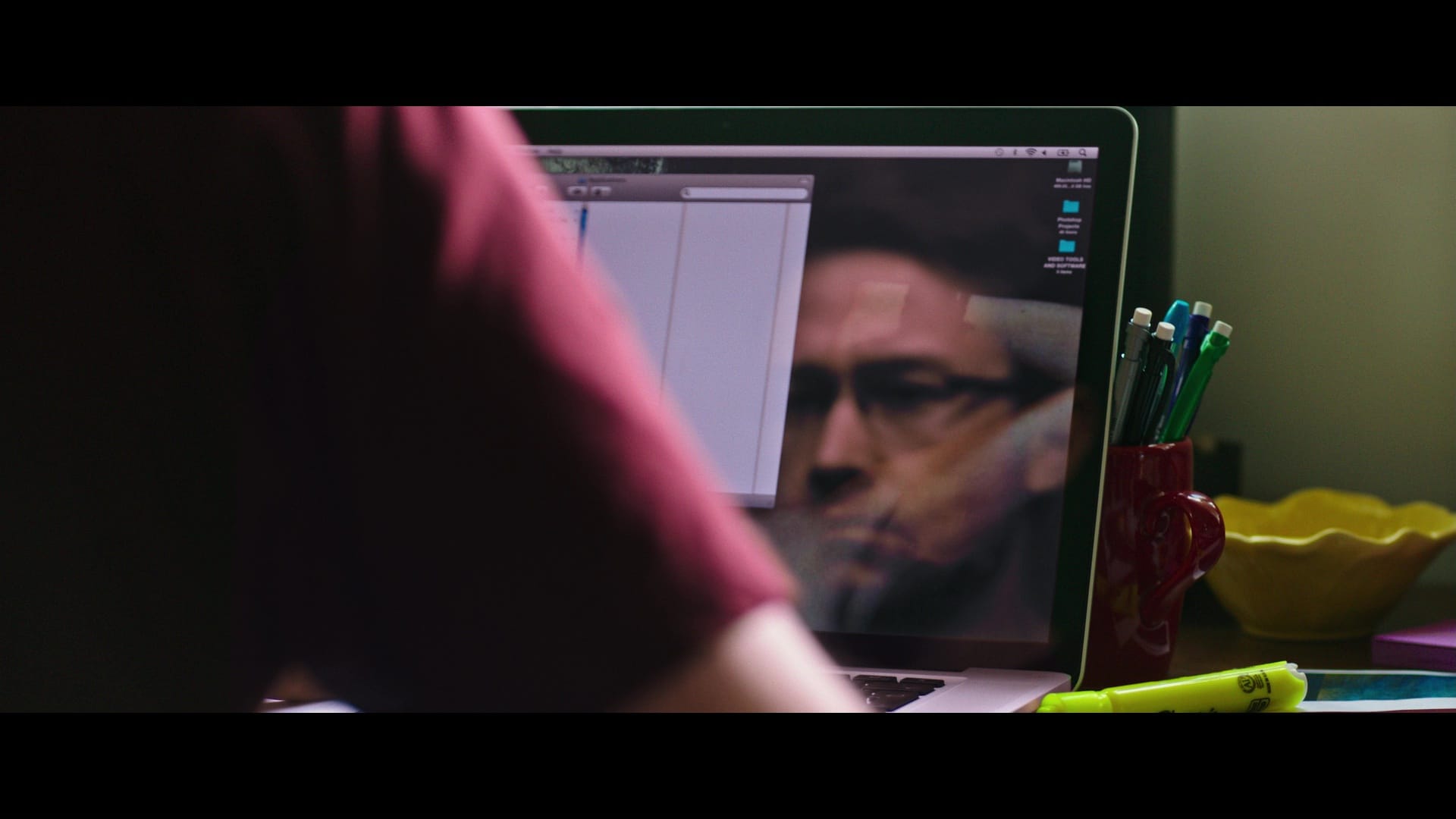
Shout carries over the supplemental package from Universal’s initial Blu-ray disc – a few deleted scenes, the brief “Finding the Truth” production featurette and a much longer Q&A with Stone, Snowden, Gordon-Levitt and Woodley – and adds a new audio commentary from Stone and new interviews with Stone, Mantle, producer Moritz Bormsn and Eric Kopeloff and co-editor Alex Marquez, all of whom have had a decade to think about the story they told and how they chose to tell it.
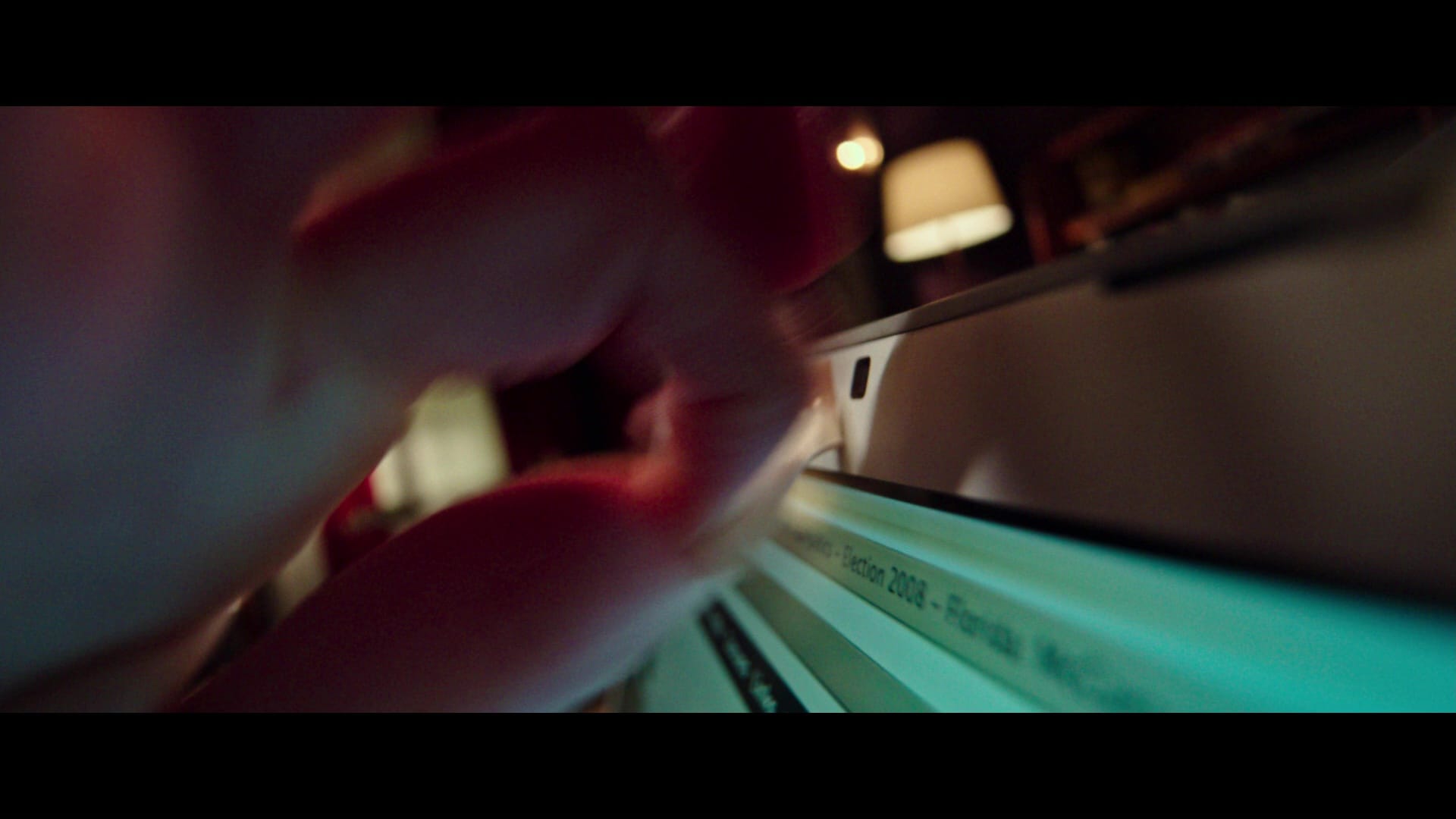
For a number of reasons, Snowden now feels as much of a historical document as Hell’s Angels; even without Stone’s agit-pop sensibility and its subjects’ questionable biases and allegiances came into question, once Donald Trump was in the White House the idea that bringing illegal activity to light could shame the American government into acting responsibly was revealed as a comforting fantasy. But you can still lose yourself in both movies. That’s nice.
Hell’s Angels is available in 4K/Blu-ray combo and BD editions in the Criterion Collection; Snowden is available as a 4K/Blu-ray combo from Shout! Studios.
Up next: The Conjuring: Last Rites and Coyotes square off for your horror dollars, and James Ivory’s Howards End gets a 4K upgrade.
